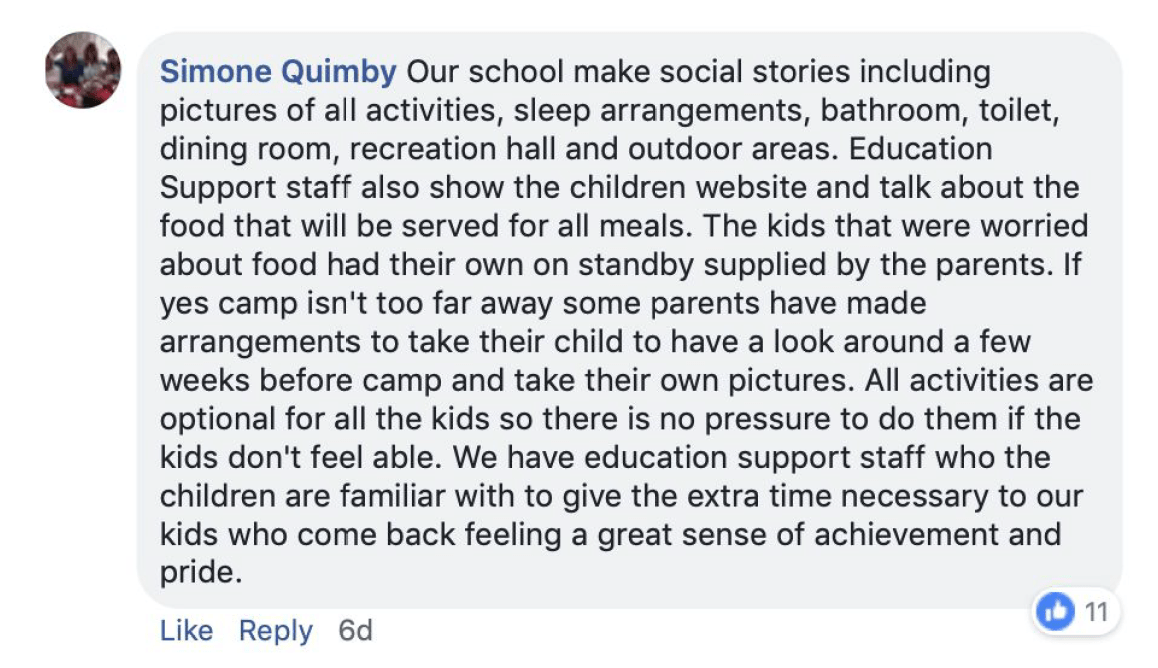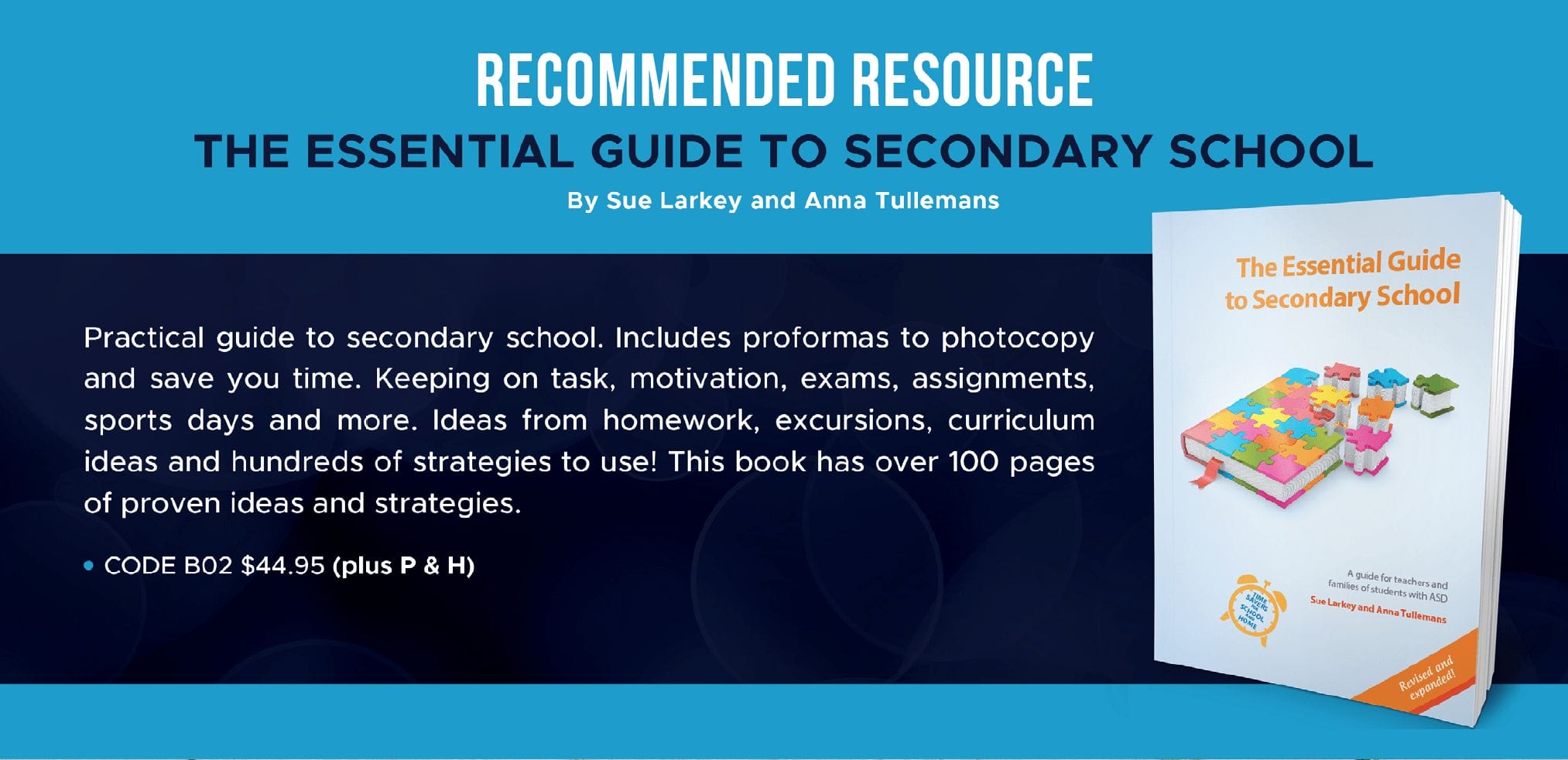SCHOOL CAMPS AND EXCURSIONS
Many children with ASD can find the anticipation of camp to be a source of great stress. Letting the student know as much detail as possible from the food to the different sensory feelings they might encounter, can often help to reduce anxiety and uncertainty. Talking about expectations and concerns can allow staff to tailor their support to the child’s specific needs.
I asked for some tips on my Facebook page and one lovely teacher gave this great piece of advice! Don’t forget to follow Sue Larkey on Facebook for more great information.

- Give the student at least two weeks warning of the upcoming camp or excursions.
- Important Information: Where they are going. When they are going. How they are going to get there.
- Download pictures of the place with maps of the area and look at the website so they can familiarise themselves and get excited.
- If possible get the family to go on a visit to the place of excursion or camp a week in advance to orientate the student. Video the camp area so they can re-watch when they get home.
- Make up books with information they can refer back to before and after camp.
- Allow the child to choose their sleeping arrangements to minimise anxiety.
- If possible allow the child to supply their own meals.

- A map of the camp or excursion venue e.g. Aquarium, Zoo map
- Mark important items on it such as: sleeping areas, eating halls, out-of-bounds areas, play areas, where to go if they need quiet time

If they are to travel on the bus talk to them about:
- Expectations on the bus.
- How they are going to feel on the bus.
- How the other students will be on the bus. (Excited and talkative and probably louder than normal).
- Sit them at the front of the bus. (Sit them near the front three rows and near the adults).
- Sit them under an air conditioning vent or have the window open.

- The planned day activities, their lengths and desired outcomes. (Why do we have to do this?).
- Which group are they going to be in?
- Which teacher/adult will be in charge of that group?
- What will they do if they get lost, overwhelmed, anxious?
- The activities and what they can do instead of joining in. (Particularly they might need some ‘down time’ at night).
- What they can do if they can’t sleep. (Talk to family about usual sleep routines).

- The emotions they are going to feel, remembering that they will pick up on the other students’ excitement and they will not know what to do about this feeling.
- How are they going to feel it? Give it a physical description.
- “What will you do it ………… happens?”
- Give them the signs of how it will feel when the outing becomes overwhelming.
- Give them written instructions on what to do if the outing becomes overwhelming.
Modified from The Essential Guide to Successful Secondary School pg 28-32




 Sorry we no longer ship items outside Australia. Please consider the digital versions of Sue’s Books –
Sorry we no longer ship items outside Australia. Please consider the digital versions of Sue’s Books – 